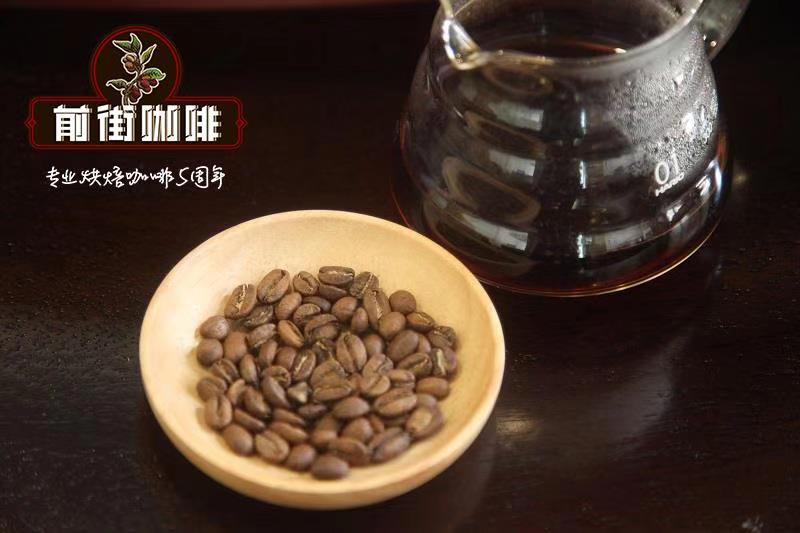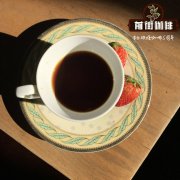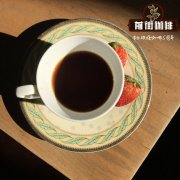Introduction what is Iron pickup Coffee introduction to Hawaii Kona Coffee

Professional coffee knowledge exchange more coffee bean information please follow the coffee workshop (Wechat official account cafe_style)
Introduction of Iron pickup and Hawaiian Kona Coffee of three Coffee varieties in Qianjie
Iron pickup and bourbon, two ancient varieties, have propagated for three hundred years in different soil and water in the new world, creating thousands of varieties and hybrids.
Intraspecific hybrid: two Arabica varieties, a new interspecific hybrid: a new hybrid of Arabica, Canifra, Liberia, etc.
Characteristics of Iron pickup and its variants
Typica iron pickup, which is typical of Arabica species, is also the first variety to be transplanted from Yemen to India, Indonesia and Central and South America. The ancient iron pickup is characterized by larger beans and longer pointed beans, but many different forms have been derived from the transplantation into the new world, as well as oval and smaller iron pickups. The taste of iron pickup coffee beans is very balanced, mild and supple is its biggest feature, the sour smell of iron pickup, not tricky, not changeable, suitable for those who are afraid of acid, but iron pickup planting altitude is less than 1000 meters or the temperature is too high, easy to have sawdust smell. Poor disease resistance and low production capacity are its biggest weakness.
Common variants of iron pickups:
Like beans: it is found that the iron pickup variety from Brazil has three times the size of ordinary coffee beans, with less fruit yield, large grains, and trouble in post-processing, so there are not many countries to grow. Brazil, Colombia, Guatemala, Nicaragua, and El Salvador have a small number of plants.
Kona Tieka: the iron pickup of the Big Island of Hawaii is from Guatemala, located in the subtropics of 20 degrees north latitude, with cooler temperatures and fertile volcanic soil, which, despite its low altitude, breeds clean sour and sweetness. even better than the blue mountains at higher elevations.
Blue mountain iron pickup: in the 1820s, it was transplanted from Martinique to the blue mountains of Jamaica. after more than 200 years, blue mountain iron pickup has evolved better disease resistance, especially better resistance to fruit rot than ordinary iron pickups. However, the Blue Mountain Ironhide Card cannot replicate its sweet and fragrant characteristics when it steps out of Jamaica.
Huangpi Potukatu: a variety of iron pickup was first found in India. The peel is yellow when it is ripe and the fruit yield is rare. Now a small amount of it is grown in Brazil. Don't underestimate it. Huang bourbon, the winner of the Brazilian Cup, is a hybrid of Huangpi Tukatu and Hongpi bourbon.
Kona coffee, produced in the Kona region of Hawaii, is a rare variety that can only be grown on volcanic slopes. The taste is rich and mellow, with a mixed aroma of wine, fruit and spice, with a special flavor. The selected Kona coffee has a moderate sour taste and a gentle and full-bodied taste, as well as a unique mellow flavor.
As production dwindles and prices catch up with Blue Mountain Coffee, the strip off the coast of Kona, Hawaii, produces the best coffee in the world, with less than 2600 acres of coffee producing 2 million pounds of beans a year. With its aroma, unique taste and outstanding regional characteristics, Kona Coffee stands out in the international competition. Another good Hawaiian coffee can be found in the United States-Hawaiian Kaj Farm Coffee (KaiFarms).
END
Important Notice :
前街咖啡 FrontStreet Coffee has moved to new addredd:
FrontStreet Coffee Address: 315,Donghua East Road,GuangZhou
Tel:020 38364473
- Prev

Is Red Standard Rose Summer good? Qianjie Coffee Red Standard Rose Summer Flavor description Red Standard Rose Summer Taste characteristics
Professional coffee knowledge exchange more information about coffee beans Please follow the coffee workshop (Wechat official account cafe_style) Esmeralda Special Geisha is a rosy summer at high altitude. Mainly from our Jaramillo and Canas Verdes farms, the special rose summer section of Esmeralda is always the highest quality rose summer we sell. Although high altitude is important for planting and harvesting
- Next

How long does it take to get rid of the foam? pay attention to the skills of the coffee machine.
Professional Coffee knowledge Exchange more coffee bean information Please follow the coffee workshop (Wechat official account cafe_style) steaming milk and sparkling milk with espresso steam sticks which may be the most obvious, but also the easiest way to correct steam and foamed milk at home. As long as you have a coffee machine with a coffee bar. Remember, before you prepare the pitcher,
Related
- Beginners will see the "Coffee pull flower" guide!
- What is the difference between ice blog purified milk and ordinary milk coffee?
- Why is the Philippines the largest producer of crops in Liberia?
- For coffee extraction, should the fine powder be retained?
- How does extracted espresso fill pressed powder? How much strength does it take to press the powder?
- How to make jasmine cold extract coffee? Is the jasmine + latte good?
- Will this little toy really make the coffee taste better? How does Lily Drip affect coffee extraction?
- Will the action of slapping the filter cup also affect coffee extraction?
- What's the difference between powder-to-water ratio and powder-to-liquid ratio?
- What is the Ethiopian local species? What does it have to do with Heirloom native species?

